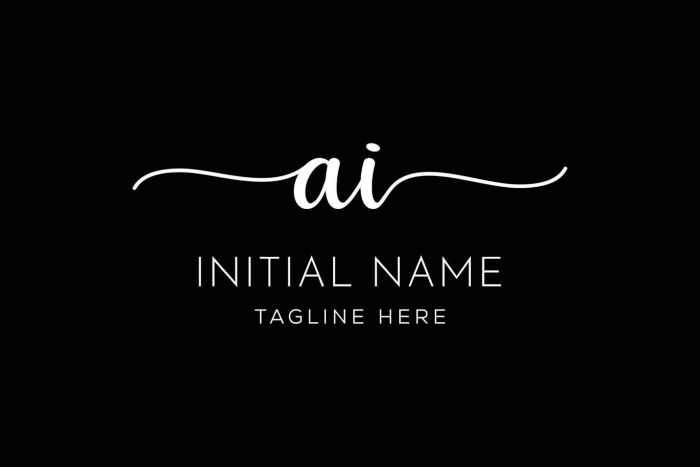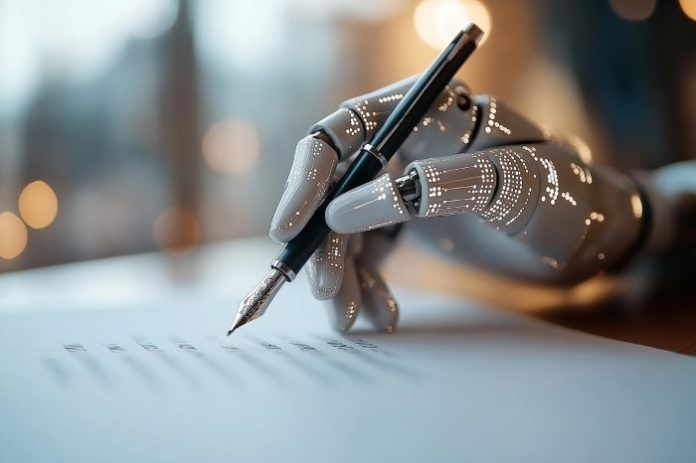In today’s fast-moving digital world, personalization has become one of the most powerful ways to stand out. Whether it’s in emails, social media, contracts, or branding, the ability to express digital identity uniquely and professionally matters more than ever. Signatures, once limited to handwritten marks on paper, are now evolving into smart, digital assets. This is where the concept of an AI signature comes into play.
An AI signature is more than just a digital scribble; it represents a fusion of artificial intelligence and personalization. By leveraging AI, individuals and businesses can create, manage, and integrate intelligent signatures across multiple platforms. From sleek professional designs to secure digital authentication, AI is revolutionizing how we view and use signatures.
This article explores the concept of AI signatures in detail, covering how they work, why they matter, their applications in professional and creative industries, and what the future holds for this growing technology.
Key Takeaways
- AI signatures merge technology and personalization, creating unique digital identities.
- These signatures enhance professionalism in digital communication, particularly in emails and branding.
- Businesses and individuals benefit from AI signatures by saving time and establishing recognition.
- AI signatures differ from traditional digital signatures by emphasizing style and adaptability while retaining security features.
- The future of AI signatures includes improved realism, biometric integration, and broader acceptance in professional settings.
Table of Contents
- Understanding AI Signatures
- The Evolution of Signatures
- How AI Signatures Work
- Why AI Signatures Matter
- AI Signatures in Different Industries
- The Role of AI in Modern Branding
- AI Signature vs. Traditional Digital Signature
- Tools and Platforms for AI Signatures
- The Benefits of AI Signatures for Individuals
- The Benefits of AI Signatures for Businesses
- Challenges and Considerations
- The Future of AI Signatures
- Conclusion
Understanding AI Signatures
An AI signature is essentially an intelligent, computer-generated signature that uses machine learning and design algorithms to create unique, personalized representations of a digital identity. Unlike generic digital signatures, AI-generated versions are crafted to reflect style, personality, and professionalism.
Think of it as a combination of artistry and technology. Where traditional signatures rely on pen and ink, AI-powered versions rely on pattern recognition, typography, and smart rendering. The system analyzes inputs such as your name, writing preferences, and even branding elements to create a signature that feels personal and authentic.
AI signatures are not just images; they can also include dynamic, scalable formats that adapt across platforms. For instance, a signature generated with AI can look equally sharp in an email footer, on a PDF contract, or on social media graphics.
The Evolution of Signatures
To fully understand the importance of AI signatures, it helps to look back at the journey of signatures themselves.
Handwritten Signatures
For centuries, handwritten signatures were the ultimate form of identity verification. Whether used in legal contracts, personal letters, or historical documents, the handwritten stroke symbolized authenticity and trust.
The Rise of Digital Signatures
With the digital transformation, scanned images of signatures and electronic signing platforms became the norm for a digital identity. These made processes faster and more secure, but often lacked the personal touch that handwritten marks carried.
Enter the AI Signature
AI takes things a step further by combining both security and personality. It not only generates visually appealing designs but also incorporates adaptability, making signatures usable in branding, communication, and security. This hybrid approach makes AI signatures a perfect fit for today’s interconnected world.

How AI Signatures Work
The process behind an AI signature involves several technological layers.
- Machine Learning Algorithms: AI systems learn from thousands of handwriting styles, calligraphy fonts, and design patterns. When a user inputs their name or initials, the AI uses pattern recognition to generate a unique signature.
- Customization Options: AI tools often allow users to adjust the style, thickness, flow, and curvature of the signature. This ensures that no two signatures look alike while offering flexibility to reflect different professional or creative needs.
- Integration Capabilities: Once generated, an AI signature can be downloaded in multiple formats (PNG, SVG, etc.) for use across platforms. Some systems also integrate directly with email platforms, document signing tools, and branding kits, allowing seamless usage.
Why AI Signatures Matter
AI signatures are not just about aesthetics; they carry several practical advantages.
- Professionalism in Digital Communication: Emails remain one of the most important communication tools in business. Adding an AI-generated signature at the end of emails enhances credibility and makes the message more memorable.
- Personal Branding: For entrepreneurs, freelancers, and creators, personal branding with a digital identity is everything. A unique AI signature becomes a recognizable element of their brand identity, much like a logo or color palette.
- Security and Authenticity: Modern AI signature tools often come with encryption and verification features, ensuring that the signature is not just stylish but also secure. This is particularly important in legal and business documentation.
- Time-Saving: Instead of manually drawing or designing a signature every time, AI generates professional results instantly. This saves time for individuals and organizations alike.
AI Signatures in Different Industries
The applications of AI signatures extend far beyond just personal use, playing a critical role in shaping digital identity across industries such as finance, healthcare, and legal services.
- Business and Corporate Sector: Companies often require executives and employees to maintain consistency in email signatures, branding, and document signing. AI signatures ensure that branding remains uniform while still allowing personal flair.
- Creative and Design Fields: Designers, artists, and writers can use AI signatures as part of their portfolios, adding a stylish personal touch to their work. It becomes part of their creative identity.
- Legal and Financial Sectors: In industries where authenticity is crucial, AI signatures combine design with encryption to provide secure yet professional-looking digital marks.
- Education and Academia: Professors, researchers, and authors can use AI signatures in academic papers, presentations, and email communication to reflect authority and professionalism.
The Role of AI in Modern Branding
Branding is no longer limited to logos and taglines; it extends to every touchpoint between a person or business and their audience. AI signatures are playing a vital role in this shift.
A signature can be more than just a name, it can be an emblem of trust and recognition. By using AI, professionals can create consistent branding across emails, social platforms, and official documents. This helps build recognition and credibility over time.
AI Signature vs. Traditional Digital Signature
It’s important to differentiate between AI signatures and digital signatures.
- Digital signatures focus primarily on security and verification, ensuring documents are authentic and tamper-proof.
- AI signatures, while they may include security features, focus more on style, personalization, and branding.
In many cases, businesses use both: digital signatures for legal purposes and AI-generated signatures for branding and communication.
Tools and Platforms for AI Signatures
The growing popularity of AI signatures has led to the emergence of multiple platforms that specialize in this technology. These tools offer user-friendly interfaces, customization, and instant results.
Some platforms also integrate features such as an AI font generator, which allows users to experiment with typography and unique letterforms when creating their personalized signatures. This fusion of AI typography and signature design ensures results that feel both artistic and professional.
The Benefits of AI Signatures for Individuals
For individuals, the impact of using an AI signature can be transformative. It elevates simple communication into an expression of identity. Whether you’re a student, job seeker, freelancer, or business owner, an AI signature helps create a lasting impression.
The Benefits of AI Signatures for Businesses
Businesses thrive on recognition and trust. An AI signature system ensures that employees maintain professionalism in their correspondence while reinforcing the company’s brand identity. Moreover, it streamlines workflows by providing instant access to ready-to-use digital signatures.
Challenges and Considerations
While AI signatures offer many advantages, there are also considerations to keep in mind.
- Over-reliance on AI: Some users may prefer traditional handwritten marks for sentimental or legal reasons.
- Security Concerns: Not all AI signature platforms offer strong encryption, so choosing a reputable provider is crucial.
- Authenticity Questions: In legal contexts, AI-generated signatures may not always hold the same weight as traditional digital signatures.
The Future of AI Signatures
The future looks promising for AI signatures. As artificial intelligence becomes more advanced, we can expect:
- More realistic handwriting simulations that closely mimic human strokes.
- Integration with biometric security for added protection.
- Wider acceptance in legal and professional settings.
- Enhanced personalization options, making signatures dynamic and interactive.
AI signatures are not just a passing trend; they represent the next phase of identity and branding in the digital age.
Conclusion
The concept of the AI signature is reshaping how individuals and businesses present themselves in a digital-first world. By merging technology with personalization, AI makes it possible to create unique, professional, and secure signatures that stand out across platforms.
From branding to communication, the applications of AI signatures are vast and growing. Whether you’re a freelancer aiming to boost your personal brand, a corporation striving for consistency, or a creative professional looking to add flair, AI signatures offer an innovative solution.
As technology advances, the importance of personalization and authenticity will only increase. Adopting AI signature tools today not only enhances professionalism but also future-proofs your digital identity for tomorrow.











